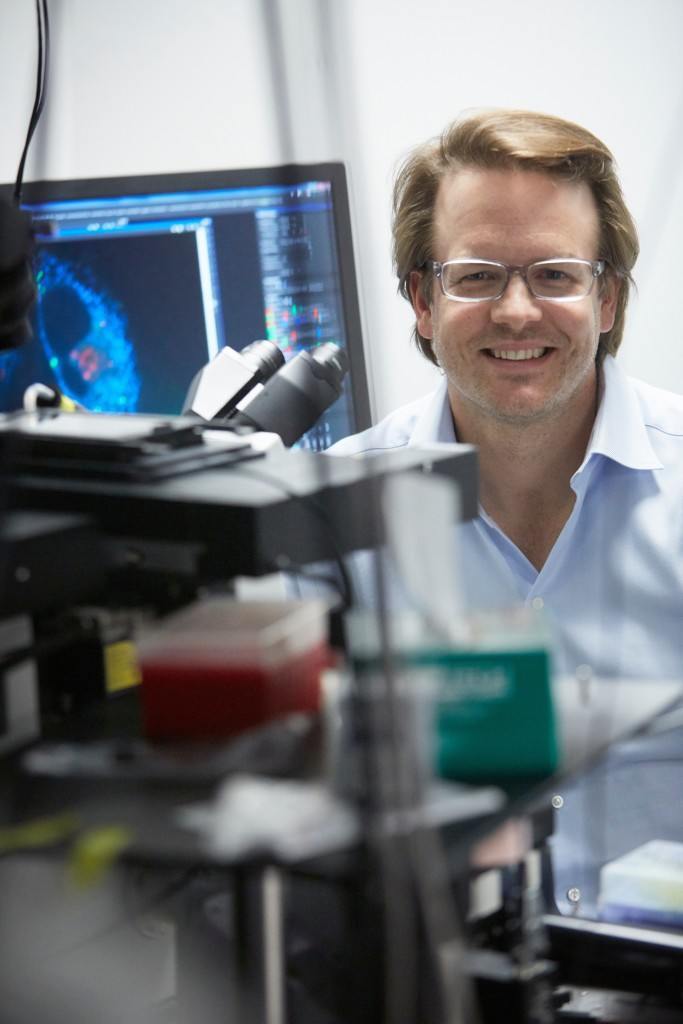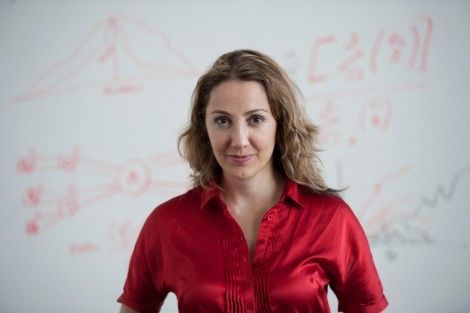Researchers Tobias Walther and Pardis Sabeti were named HHMI investigators in May by the Howard Hughes Medical Institute—a prestigious five-year appointment covering salary, benefits, and research budget.
Walther, professor of genetics and complex diseases, is the first faculty member with a primary appointment at the School to receive the honor. With scientific partner Robert Farese, professor of genetics and complex diseases, Walther has identified more than 200 genes that regulate lipid storage in cells and discovered that there are two classes of lipid droplets: small, static droplets and larger droplets that expand as needed.
“It is fantastic to have our work and the potential for future discovery recognized by HHMI,” Walther says. “The opportunity associated with this appointment will allow Bob [Farese] and me to push forward in elucidating mechanisms of lipid storage and homeostasis.” That research could offer insights into health problems such as obesity, diabetes, and heart disease.
Sabeti, associate professor in the Department of Immunology and Infectious Diseases, uses the evolutionary record embedded in the human genome to glean insights into the fundamental biology and transmission of infectious diseases. Last year, the Sabeti lab tracked key genetic mutations in the Ebola virus during its epidemic spread in West Africa.
“I am extraordinarily humbled and grateful to be a recipient of an HHMI award,” Sabeti says. “It is a wonderful opportunity for me, and for my lab, to explore new directions with exceptional latitude. I understand that this is such a great responsibility because of the opportunity ahead of me, and I hope to earn the faith that the organization has shown in our work.”

HHMI encourages its investigators to push their research fields into new areas of inquiry. By employing scientists as HHMI investigators—rather than awarding them research grants—the Institute is guided by the principle of “people, not projects.” HHMI investigators have the freedom to explore and, if necessary, to change direction in their research. And they have support to follow their ideas through to fruition—even if that process takes many years.
“Scientific discovery requires original thinking and creativity,” HHMI President Robert Tjian said in the award announcement. “We don’t know this for certain, but the ideas that emerge from these labs might one day change the world.”
— Amy Roeder is assistant editor of Harvard Public Heath.
